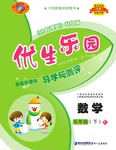题目内容
There was a woman in Detroit,who has two sons.She was worried ______ them,especially the younger one, Ben,_____ he was not doing well in school.Boys in his class ____ fun of him because he seemed so ___ .
The mother ____ that she would, herself,have to get her sons to do better in
school.She __ them to go to the Detroit Public Library to read a _____ a week and do a report about it for her.
One day,in Ben’s _____, the teacher held up a rock and asked if anyone knew it.Ben _____up his hand and the teacher let him ___.“Why did Ben raise his hand?” they wondered. He __ said anything; what could he possibly want to say?
Well, Ben not only_______ the rock; he said a lot about it. He named other rocks in its group and even knew ____ the teacher had found it. The teacher and the students were _____. Ben had learned all this from doing one of his book ____ .
Ben later went on to the __ of his class. When he finished high school,
he went to Yale University __ at last became one of the best doctors in the United States.
After Ben had grown up,he __ something about his mother that he did not know as a ________.She,herself,had never learned how to ____.
1.A. about B. on C. with D. over
2.A. because B. so C. but D. though
3.A. played B. got C. took D. made
4.A. clever B. hard C. slow D. quick
5.A. asked B. decided C. forgot D. heard
6.A. made B. let C. told D. considered
7.A. notice B. message C. book D. question
8.A. class B. room C. office D. lab
9.A. looked B. gave C. took D. put
10.A. think B. leave C. stand D. speak
11.A. always B. even C. quickly D. never
12.A. found B. played C. knew D. threw
13.A. whether B. when C. where D. why
14.A. afraid B. surprised C. worried D. unhappy
15.A. pictures B. exercises C. shops D. reports
16.A. top B. end C. back D. side
17.A. so B. and C. or D. however
18.A. learnt B. remembered C. understood D. guessed
19.A. doctor B. child C. student D. teacher
20.A. read B. work C. teach D. show
 优生乐园系列答案
优生乐园系列答案
